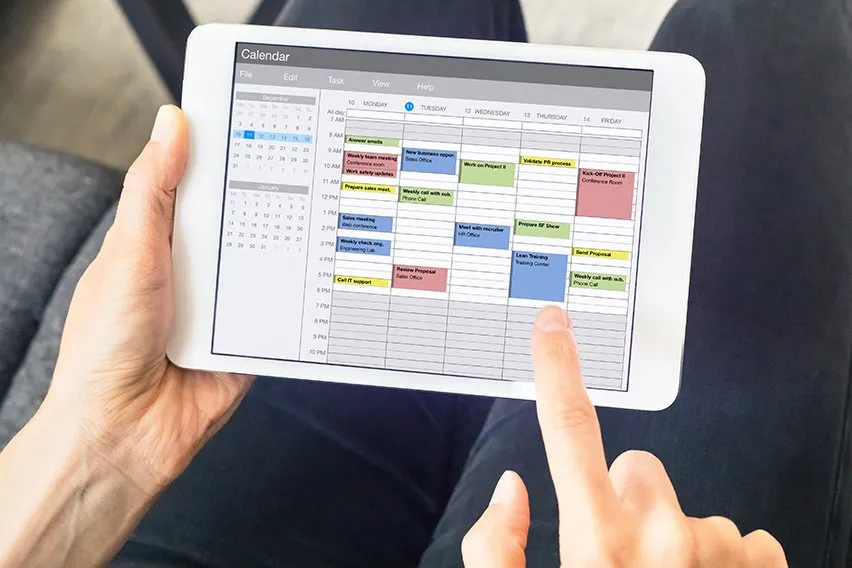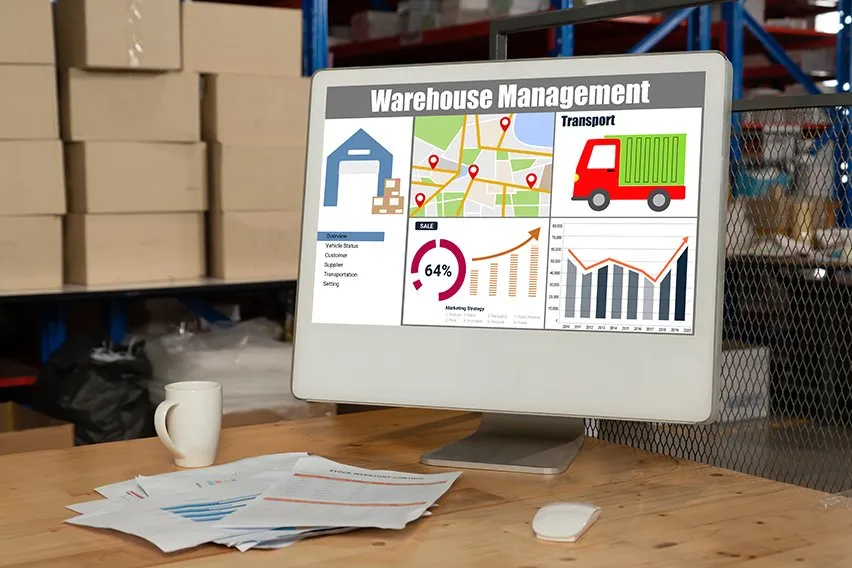What Is Project Time Management?

Project time management is a specific form of time management. This means the management and tracking of time spent on a particular project. It requires business owners to plan ahead for future obstacles, while remaining flexible in the present.
But in large projects, different tasks are often interrelated. Making changes to one task can have cascading effects that change the course of the entire project. Here’s why project time management is so important, along with some best practices.
Here’s What We’ll Cover:
How Project Time Management Works
Why Time Management Matters
When you’re working on a project, you ordinarily have a deadline. When you build your project schedule, everything is based upon meeting that deadline. But by definition, a project involves more than one task. Think about it – if there’s only one step involved, it’s not a project. It’s just a task.
Project planning requires a project manager to consider all the tasks in context. Let’s take the example of a simple household project, like replacing your kitchen appliances.
Maybe you’ve got free time this weekend, and you want to throw out all your old appliances. But unless your replacements are ready to go, that’s not an option. You need to plan ahead and have your supplies ready before doing the work.

In this case, the project has three steps:
- Buy new fridge and stove
- Discard old appliances
- Install new appliances
A delay in the first step leads to a delay in the second step, which cascades on to the third step.
Real-world business projects are much larger in scope and involve multiple interrelated tasks. Let’s say you’re renovating an entire office building. You might need to do your electrical work after plumbing, but the plumbing also needs to be inspected. That inspection, in turn, needs to be scheduled in advance.
The steps involved in this process would be:
- Schedule plumbing inspection
- Perform plumbing work
- Pass plumbing inspection
- Proceed with electrical work
If someone forgets to schedule a plumbing inspection on Day 1, it can impact an electrical installation on Day 60. That’s why project time management is so important. A project manager needs to be able to track all of their tasks to prevent this kind of snafu.
How Project Time Management Works
Time management skills can take a lifetime to master. But just as there are some basic project management principles, there are also some tried and true time management techniques.
First, decide how you will manage your scheduling. Who will be in charge? What project management software will you use? How will you track time? How will you ensure that individual tasks remain on schedule? By having your project management plan in place beforehand, you set your project team up for success.
Define your project activities. This means breaking down the various tasks involved in your project. Start by identifying the critical path to each milestone. From there, you can start to fill out your task list with smaller details. A work breakdown structure (WBS) can be helpful, particularly for complex projects.
Determine the task order. At this point, you have a milestone list, and you know what needs to be done. Now, it’s time to decide how to order your task list. Most time management tools include a timeline view to make it easier to sequence activities.

Estimate required resources. Resources can refer to physical supplies, building materials, capital, and even software. However, resources also means people. If you need to make any hires, it’s best to know that at the start.
Estimate activity durations. Now you know the task order, as well as the resources you need. You have all the information you need to determine the period of time required for each step. Make sure to build some wiggle room into your time estimates for inevitable delays.
Create your schedule. Map out all of your tasks in the right order, spaced at the right durations. Log all the start and end dates, and make note of any dependent activities. This is another step where scheduling software can be a big help.
Finally, stick to your project schedule. A time tracking app can help you ensure that your team is completing individual projects on time. And by monitoring your real time progress, you can adjust your plans as needed. For example, you can shift additional resources to tasks that are behind schedule.
Key Takeaways
Effective time management requires the correct tools, and a strong project management team. You need to track time, resources, and completion levels. But with the right attitude, you can carry any project to completion.
Have more burning business questions you need answered? Our resource hub has answers! Check it out for more helpful guides and articles.
RELATED ARTICLES
 6 Most Useful Project Management Techniques You Should Know
6 Most Useful Project Management Techniques You Should Know What Is Overtime Pay & How Does Overtime Work?
What Is Overtime Pay & How Does Overtime Work? Complete Guide to Time Blocking & 3 Best Time Blocking Apps
Complete Guide to Time Blocking & 3 Best Time Blocking Apps Top 6 Best Employee Management Software for Small Businesses
Top 6 Best Employee Management Software for Small Businesses 8 Best Order Management Software for Small Businesses
8 Best Order Management Software for Small Businesses What Is Backordering in Materials Management?
What Is Backordering in Materials Management?